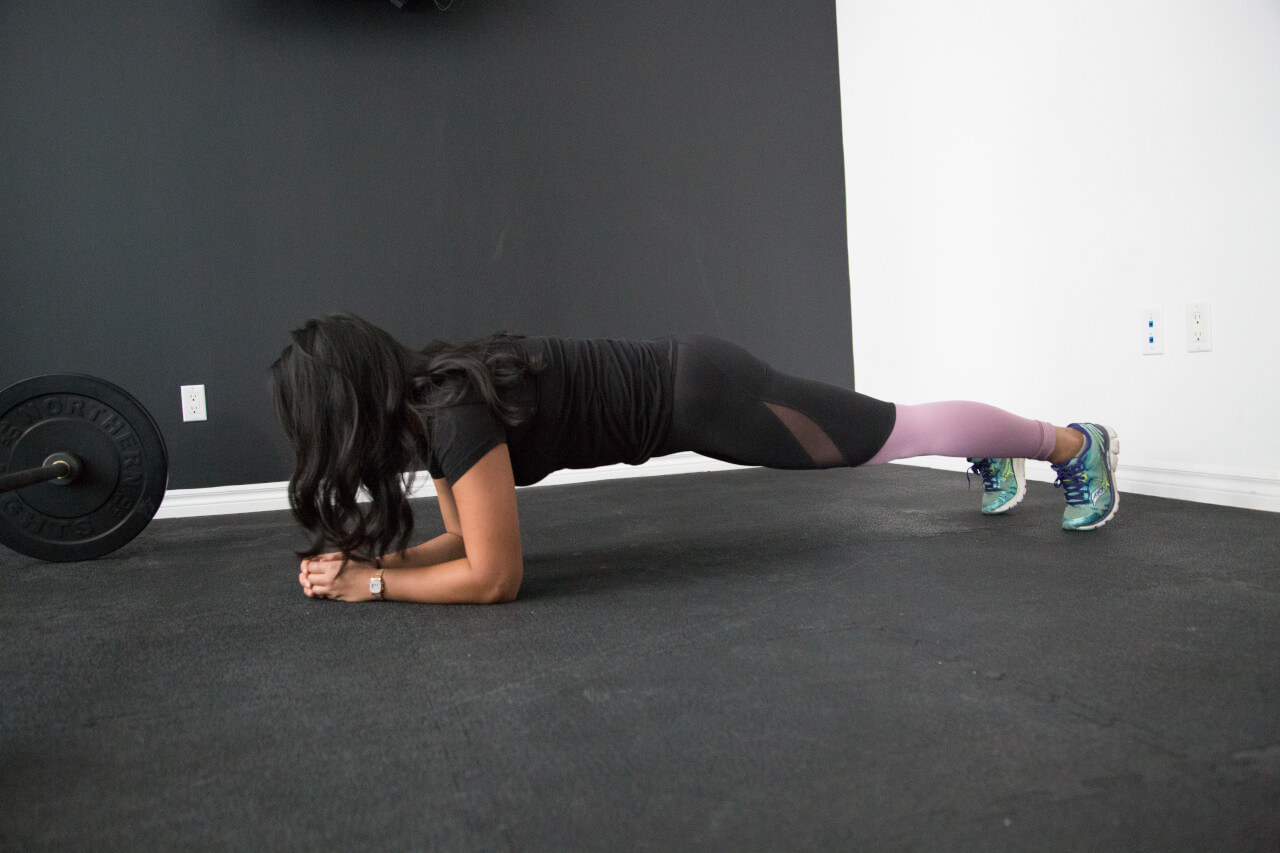Watching gymnasts in the Olympics has always fascinated me.
It’s captivating watching them perform backflips, front flips, handsprings and all of these other routines that I would break several bones trying myself.
And they have amazing balance.
I love balance, especially in budgeting. I try to introduce balance in many different areas of my life.
While it’s impossible to get balance in every aspect of life—some areas require integration rather than balance—having balance in your budget will literally change your life.
The verb Balance means to “keep or put (something) in a steady position so that it does not fall.
The noun Balance means to have “an even distribution of weight enabling someone or something to remain upright and steady.”
Do you see what I see?
Both definitions refer to using balance to keep something steady. Balance is the key to keeping your budget steady and strong.
Creating Balance
A gymnast in the Olympics has amazing balance. They make what they’re doing look easy.
They run toward the Vault, jump off that springboard, flip like crazy in the air, and then somehow stick the landing like it’s nothing. It’s amazing!
But how did they get there?
A gymnast needs years of practice and training to get to that point. The training they go through gives them several things:
- Their balanced diet provides enough protein, carbs, and fats to support their muscles and enough calcium to keep their bones strong with the pressure placed on them
- Their muscles have grown strong and have memorized the positions they need to be in to perform the routines—not unlike a singer who knows a song inside and out
- The training helps their bodies to be in peak physical state, strong and healthy, so they minimize the risks of injury
- They’ve worked on their core muscles (the area around their abdomen) to give them a huge amount of balance and strength
- Their brains memorize where they should be landing on all of the equipment
A gymnast knows their body, their routine, and their mind.
Along with their training, these combine into what we see in the Olympics where they do amazing feats and make it look easy.
But how does that translate into a budget?
Let’s look at 9 ways a gymnast can teach us how to find balance in our budget.
1. Have Intense Focus
From the time an Olympian decides they want to be a part of the games, they have a singular focus. It can take years to gain the necessary skill and strength to make it to the Olympics so they usually start very young
Olympic gymnasts train for upwards of 40-48 hours per week. That translates to eight hours a day for up to six days a week.
That’s more than a full-time job! This singular focus helps them reach their goals
In your budget, focus on your end goal. Where do you want to be in a year? How about five years or ten years?
Start now and set yourself up for your future no matter what that looks like for you.
2. Strengthen the Core
The core of the body at its most basic level is around the middle of your body. Think abs, lumbar muscles in your back, etc. Gymnasts have to have an intensely strong core to be able to balance and do the routines they do.
Your core of finance is your budget. It is the root system of all other areas of personal finance.
Strengthen your budget by aligning it with your values, creating your own budget, and always learning.
Form good financial habits just like gymnasts memorize their routines down to the point where it becomes automatic and natural for them to perform.
Strengthen your core, the roots of your finance tree, and watch everything else fall into place.
3. Play the Long Game
Gymnasts are extremely dedicated to their craft. They are playing the long game because they know how long it will take them to train and be at the level of an Olympic athlete.
In the same way, to create balance in your budget, be dedicated to what it takes to better your financial life.
Changes may need to be made. You may have to spend less money. You may have to spend more money. And you may not see the results right away.
Keep going.
This is especially true of investing. While you’re saving up for retirement—whether you’re shooting to retire early or not—long-term gains will always be easier to achieve than trying to time the market.
4. Be Flexible but Stretch Yourself
Another reason gymnasts have great balance is because they are always stretching themselves.
Their flexibility allows them a great range of motion than a normal person can achieve and lets them adapt to the situation if something goes wrong.
In your budget, things will go wrong at times. You may not always hit your budget goals. It may take practice to hit them every time.
Don’t get down on yourself for it. Be flexible and adapt to the situation.
At the same time, don’t be afraid to stretch yourself. Put yourself in uncomfortable positions. Set yourself a goal of paying off all your debt in a short amount of time or save a certain amount in a short amount of time.
This forces your brain to think and come up with answers on how to get there.
And the more uncomfortable situations you put yourself in, the more comfortable you’ll get with being uncomfortable. This leads to you being able to be more flexible.
5. The More You Do it the Stronger You Get
One of the main complaints I hear from people I coach about budgeting is that it takes a long time to do.
Gymnasts have to start small. They don’t just automatically start practicing their toughest routines. They have to strengthen themselves first.
By lifting weights and practicing, their muscles get stronger and get used to the load. They get stronger the more they lift and practice and it gets easier for them.
The same goes for budgeting.
The more you budget you get stronger at it. When you’re “in shape” with your budget, it’s easier to do the work.
The better you get at budgeting, the less time it’ll take. Keep going and get stronger and watch as your budget improves and continues to grow.
6. Use the Right Tools
Gymnasts also have to make sure they are using the right tools for their exercise.
They can’t use the Vault to practice their floor routine. They can’t use the balance beam to practice the uneven bars.
In the same way, when you are budgeting, use the right tools for the job.
Find the best tool for you to track your finances. I use You Need a Budget (YNAB) to do all of my budgeting.
It is an awesome tool! You set yourself a budget every month—or just copy the one from the previous month—and then categorize your transactions throughout the month according to those budget categories.
They provide a free app as well so you always have your budget with you and are able to enter transactions on the go.
Note: If you sign up using my link, you’ll get the normal 34-day trial and then an additional free month after you subscribe!
Other tools you can use include Mint, Personal Capital, EveryDollar, or Acorns.
A simple spreadsheet may also be just what the financial doctor ordered to track your expenses.
The point is to use the tools that are right for you. Try something for a bit, and if it doesn’t work, try something new.
7. Master the Basics
One thing Olympic gymnasts do really well is basic gymnastic techniques.
Watch an Olympic gymnast and a less experienced gymnast do a basic routine side-by-side and you will immediately notice the difference.
The Olympic gymnast has the basic techniques mastered and can do them almost flawlessly without needing to think.
In budgeting, learn the basics so well that they become a habit. These basics include:
- Knowing where your money is going
- Knowing your income and expenses
- Using automatic payments to save and pay your bills
- Keeping in mind how much cash flow you have each month
- Keeping your future goals in mind so you think about each purchase as having a purpose
For example, I have the habit of looking at the amount I have in my grocery budget before I go grocery shopping.
This helps me know how much I can spend and also gives me a rough estimate of how much I have left after I check out at the store.
Develop some habits, master the basics, and you will make budgeting look easy.
8. Set a Long-term Goal
Olympic gymnasts have a goal of making it into the Olympics. Again, this takes years of practice to achieve.
When you set a big long-term goal you start to get clarity on your smaller goals. It starts to become clear to you what you need to do in the short term to move toward that long-term goal.
My long-term goal is to be an entrepreneur so I make sure I align my budget with that. I spend, save, and invest in that goal.
What is your long-term goal?
Make sure you are setting goals that make sense for you though.
When I paid off $26,000 in debt in 11 months, I made the choice to make some sacrifices to make that happen.
However, I didn’t want to sacrifice things like eating out every once in a while or taking vacations. We went to Disney World and Colorado for family vacations in the midst of that 11 months.
I knew I would burn out if I cut out everything for the sake of paying off debt.
What I did do was spend mindfully and very strictly stick to our other budgets. Even our eating out budget was lowered a bit so I could make sure we were on target.
Your goals will be different and the balance in your budget will be different than mine.
I encourage you to make a long-term goal or two and balance your budget to work toward those goals.
9. They Have a Support System
One of the most important aspects of an Olympic gymnast’s training and competing is the support system they have.
From their teammates to their coaches and parents, everyone is there to support them and push them further.
A gymnast’s coach is especially close to them. They help with their training and mentorship and everything in between.
They are there for them with anything and it helps the gymnast know they can achieve anything.
Do you have a support system in your life?
I recommend hiring a financial coach or even finding a friend, that will help you stay on track, encourage you, and push you to do more.
Reach out to a good friend, find a Facebook group of like-minded budgeters, buy a course that comes with live training, meet with someone personally—do what you can to find someone that will support you in what you’re doing financially.
Having someone to encourage you and keep you accountable will change the way you see your budget and what you are capable of doing.
Final Thoughts
Gymnasts are amazing athletes. Olympic gymnasts seem to be on a whole other level.
Gymnasts create balance by following these nine different tips. They train hard, work hard, never give up, and don’t accept anything less than what they want.
Do you want balance in your budget? Use these nine tips to create it.
And don’t settle for an unbalanced budget.
























